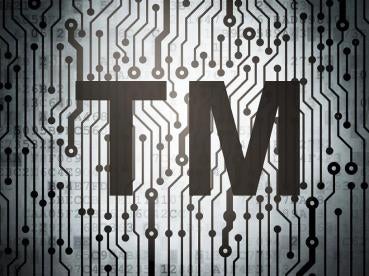Addressing whether a trademark applicant must have a bona fide intent to use the mark in commerce with respect to all of the goods and/or services listed in the application, the US Court of Appeals for the Sixth Circuit affirmed the district court’s finding that the applicant lacked a bona fide intent to use the mark for at least some of the listed goods and services, but reversed the district court’s decision to void the applications at issue in their entirety. Kelly Servs., et al. v. Creative Harbor, Case No. 16-1200 (6th Cir., Jan. 23, 2017) (Clay, J).
Kelly Services and Creative Harbor adopted (around the same time) the identical mark “WorkWire” for their competing employment-based mobile software applications. Creative Harbor filed two intent-to-use (ITU) applications with the US Patent and Trademark Office. Upon learning of Kelly Services’ use of the mark, Creative Harbor sent a cease and desist letter. Kelly Services responded by bringing a declaratory judgment suit challenging Creative Harbor’s claim that it had priority to the WorkWire mark based on its ITU applications. Creative Harbor moved for partial summary judgment as to its priority claim, which Kelly Services opposed on the ground that Creative Harbor lacked a bona fide intent under § 1(b) of the Lanham Act to use the mark on some of the goods and services listed in its ITU applications. The district court denied Creative Harbor’s summary judgment motion and construed Kelly Services’ opposition as a cross-motion for summary judgment. The district court granted the cross motion, thereby voiding Creative Harbor’s ITU applications in their entirety. Creative Harbor appealed.
The Sixth Circuit affirmed the district court as to the bona fide intent issue, finding that the deposition testimony of Creative Harbor’s CEO sufficiently demonstrated a lack of a bona fide intent to use the WorkWire mark for at least some of the goods and services identified in Creative Harbor’s ITU applications. Specifically, the CEO’s testimony demonstrated that he wanted the ITU applications to cover goods and services not just for present use, but also for possible future exploration and expansion (in his own words: “in case the brand got bigger,” “might be of future importance,” “to keep the option open to at some point do that,” etc.) According to the Court, these statements showed that Creative Harbor did not have a “firm” intention to use the WorkWire mark for all of the goods and services listed in its ITU applications, but rather included them in the applications merely to “reserve a right in the mark” in case it ever decided to expand commercial activities into certain areas.
The Sixth Circuit next addressed whether the district court correctly voided Creative Harbor’s ITU applications in their entirety. Here, the Sixth Circuit reversed, explaining that when an ITU applicant lacks bona fide intent as to some, but not all, of the goods and services listed in the application, the application should not be voided in its entirety absent evidence of fraud or other egregious conduct. According to the Sixth Circuit, courts should identify the goods and services for which the applicant lacks bona fide intent and excise only the overbroad portions of the application. The Court remanded the case back to the district court to evaluate each of the 36 goods and services listed in Creative Harbor’s ITU applications and to make individualized determinations on the issue of bona fide intent based on Creative Harbor’s objective documentary evidence.



 i
i


